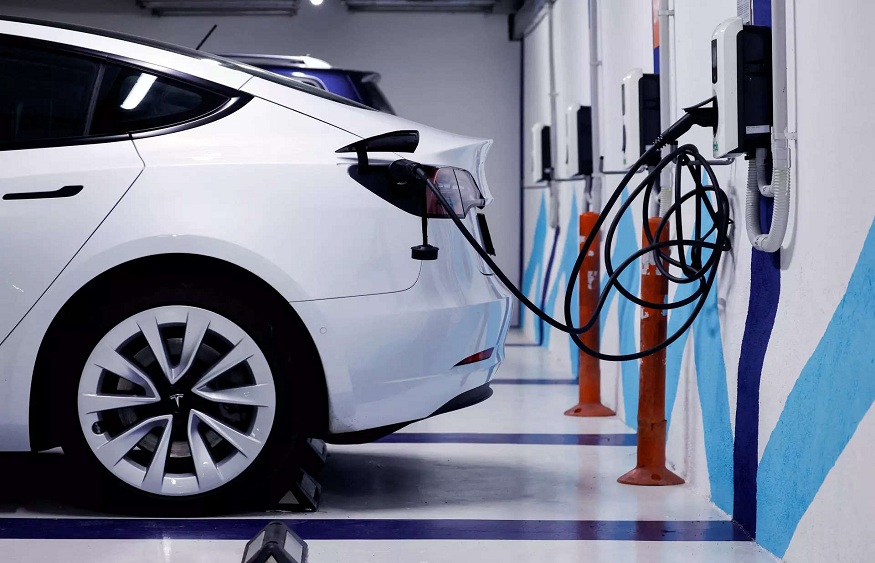THE DIFFERENCE BETWEEN THE ELECTRIC CAR AND THE HYBRID
First, let’s start by distinguishing between electric cars and hybrid cars.
Electric cars do not have a fuel, gasoline or diesel tank. Thanks to its engine, the electric car is autonomous over several hundred kilometres. Recharging the electric battery of your car can be done both at free access terminals and at public terminals or even at home if you are well equipped.
Hybrid cars , on the other hand, have a gasoline engine as well as an electric battery. The difference of this car lies in its charging system, which is somewhat different from the traditional system. Indeed, the fact is to decelerate and brake on these cars leads to its recharging. The energy stored during this phase will allow the car to start or will be used when the hybrid car is driving slowly. When the car reaches a higher speed, the heat engine takes over, allowing it to operate like a conventional vehicle.
Read our article to learn how electric and hybrid motors work.
THE ADVANTAGES OF ELECTRIC CARS
Sales of electric cars are booming. The advantages of moving towards cleaner mobility are numerous. These cars are easy to drive thanks to the absence of a clutch which allows the engine not to stall. In addition, these cars are perfectly silent.
Electric cars are also very practical, the acquisition of such a car, although expensive when purchased, will allow you to recharge these cars directly from your home and save you trips to a gas station, which which will free you from fluctuating fuel costs.
In addition, the cost price of electric cars over the medium and long term is more advantageous. After 4 years of use, the electric car becomes more economical than petrol cars or diesel cars. The UFC Que Choisir has made a comparison of these cars, the consumption per year for an electric car amounts to an average of 188 € against 1461 € per year on average for a petrol car.
THE DISADVANTAGES OF ELECTRIC CARS
Electric cars remain more expensive to buy than traditional cars. This price difference is explained in particular by the use of batteries composed mainly of lithium , representing 40% of the price of the vehicle. Nevertheless, the State has set up aid for the purchase of these vehicles which can be combined with each other, namely the conversion bonus as well as the ecological bonus.
BONUS ON ELECTRIC CARS
The conversion bonus was set up with the aim of giving all French people the opportunity to buy a new or used electric vehicle . To be able to access this bonus, you will have to scrap your old vehicle in exchange. The amount of this bonus can go up to €5,000 for the purchase of a new or rechargeable second-hand electric or hybrid car .
As for the ecological bonus , this aid can reach a maximum amount of €7,000 for the purchase of a new or used electric car.
ELECTRIC CAR VS HYBRID: WHAT RANGE?
Electric cars are mainly used for short and small daily journeys. This is notably due to the autonomy of electric vehicles, which remains low. Autonomy is on average around 200 to 300 kilometers, and can reach 600 kilometers for high-end models. Nevertheless, it is certain that for the moment electric cars are not ready to reach the autonomy of conventional cars which is probably unlimited.
The maintenance of electric cars is somewhat complicated. Many parts are absent on the market, such as the carburettor, the clutch or the gearbox.
However, the environmental consequences of using electric cars are paradoxical. It is true that these cars do not emit CO2 when driving, which limits air pollution and global warming. This problem is more relevant than ever these days, but these are polluting on other aspects:
- Conventional cars consume half the energy of electric cars during their manufacture. The processes used in the manufacture of cars consume a lot of energy, such as heating materials up to 400 degrees.
- The extraction of the lithium used in the design of the batteries is a polluting process and requires significant water consumption, leading to drought and the reduction of biodiversity in the regions where the lithium is extracted.
- The heavy weight of electric vehicles affects the emission of fine particles following abrasion on brake pads and tires representing the equivalent in emissions of a diesel vehicle.
Find our 10 tips for eco-driving.
We can say that electric cars have many advantages that allow them to position themselves as the ideal alternative to a traditional car. The technologies that pursue this line of improvement will undoubtedly be able to offer more autonomous, more ecological and more economical cars in the future .
If you have any questions or if you want to tell us about your own experience, we will be happy to answer you in the comment section.

